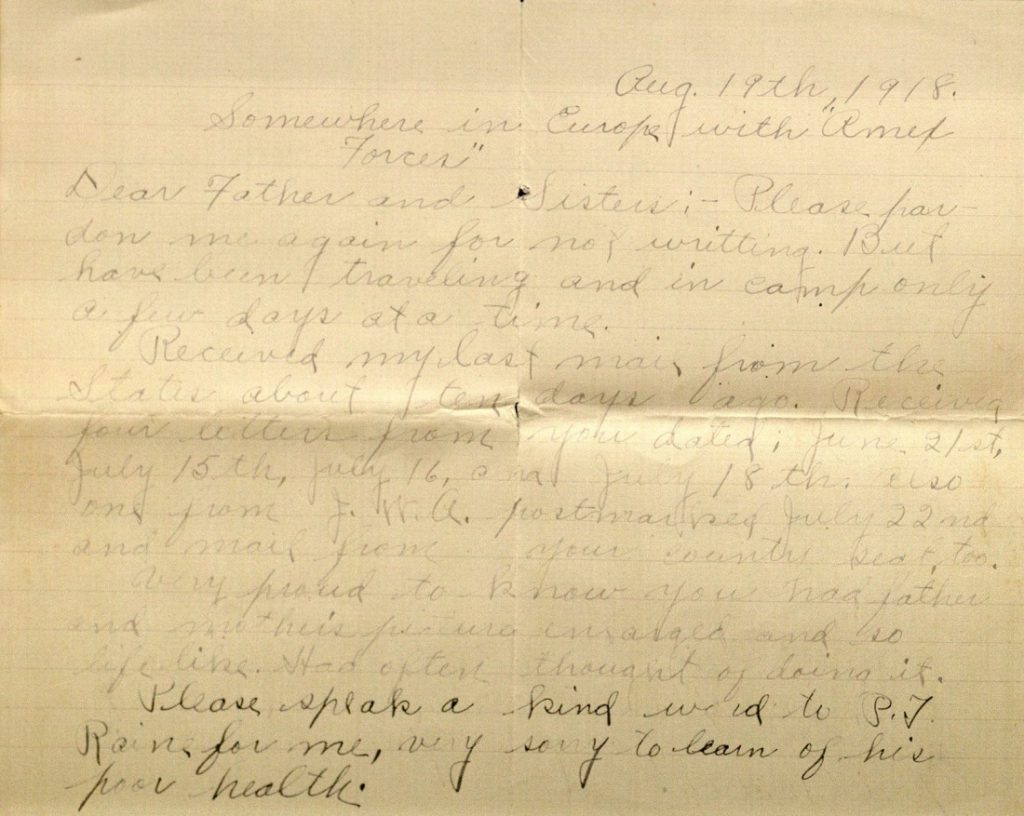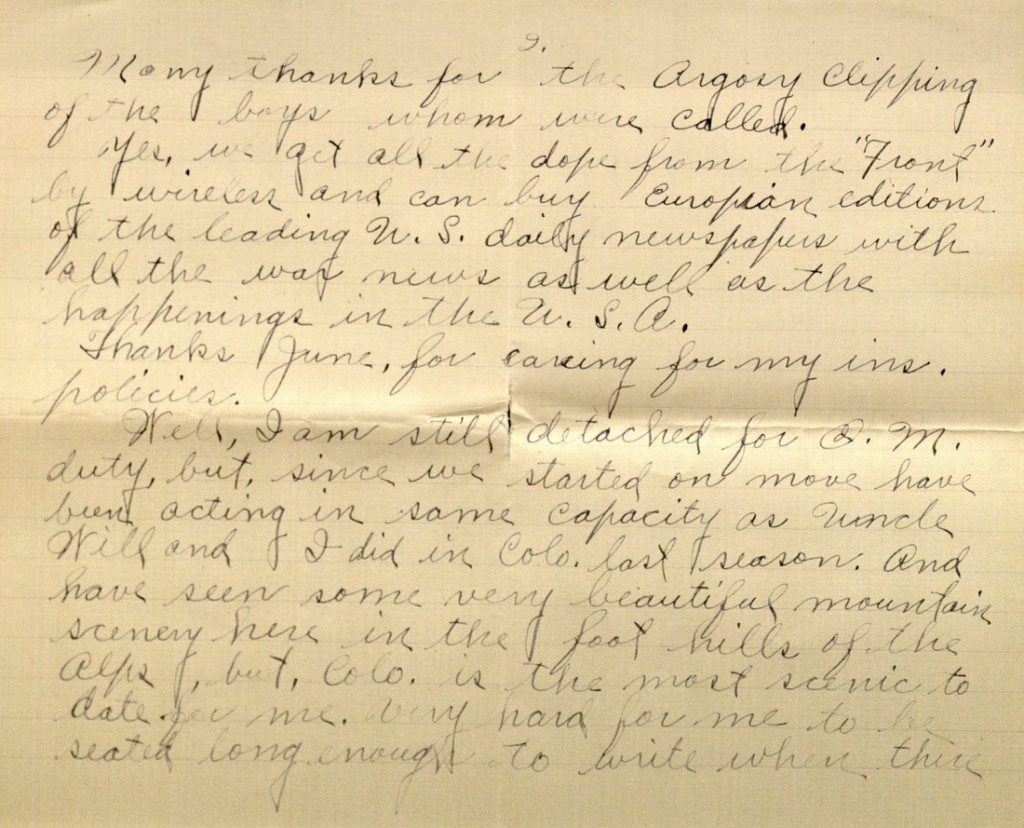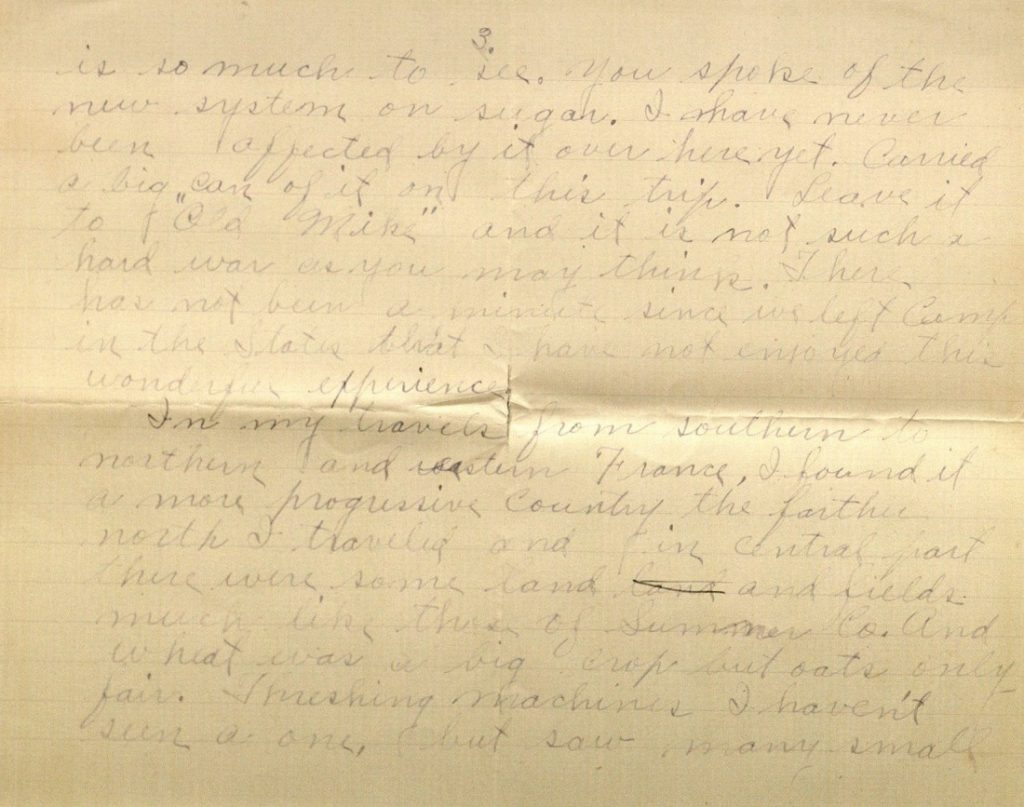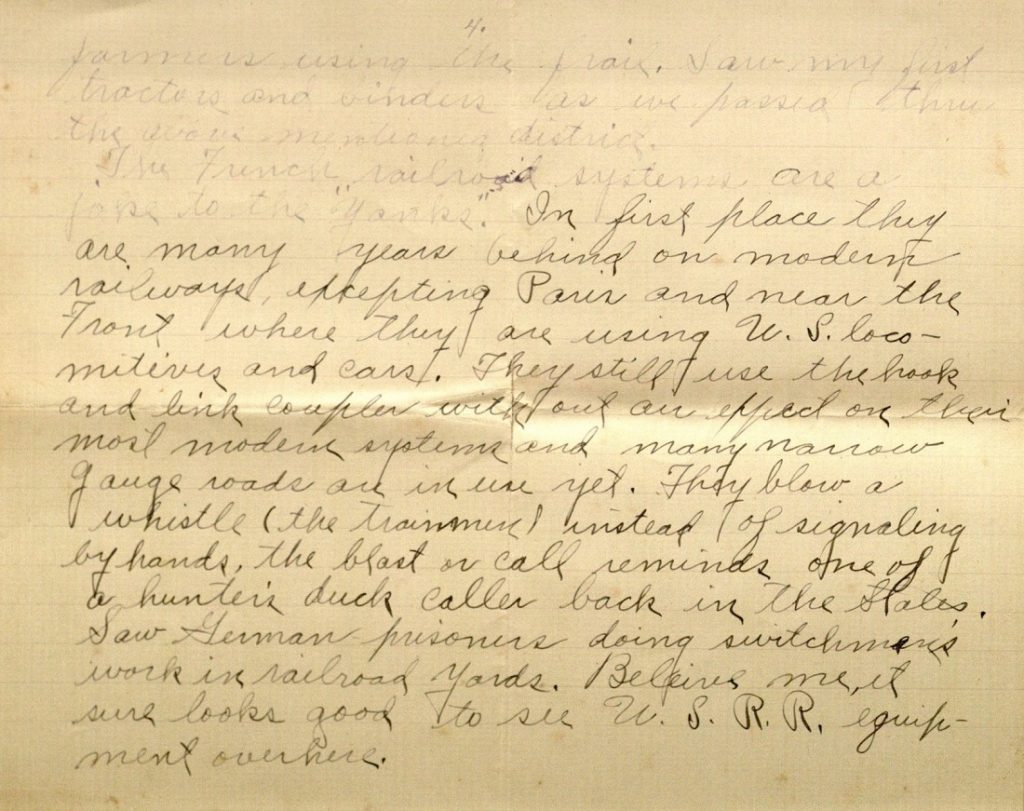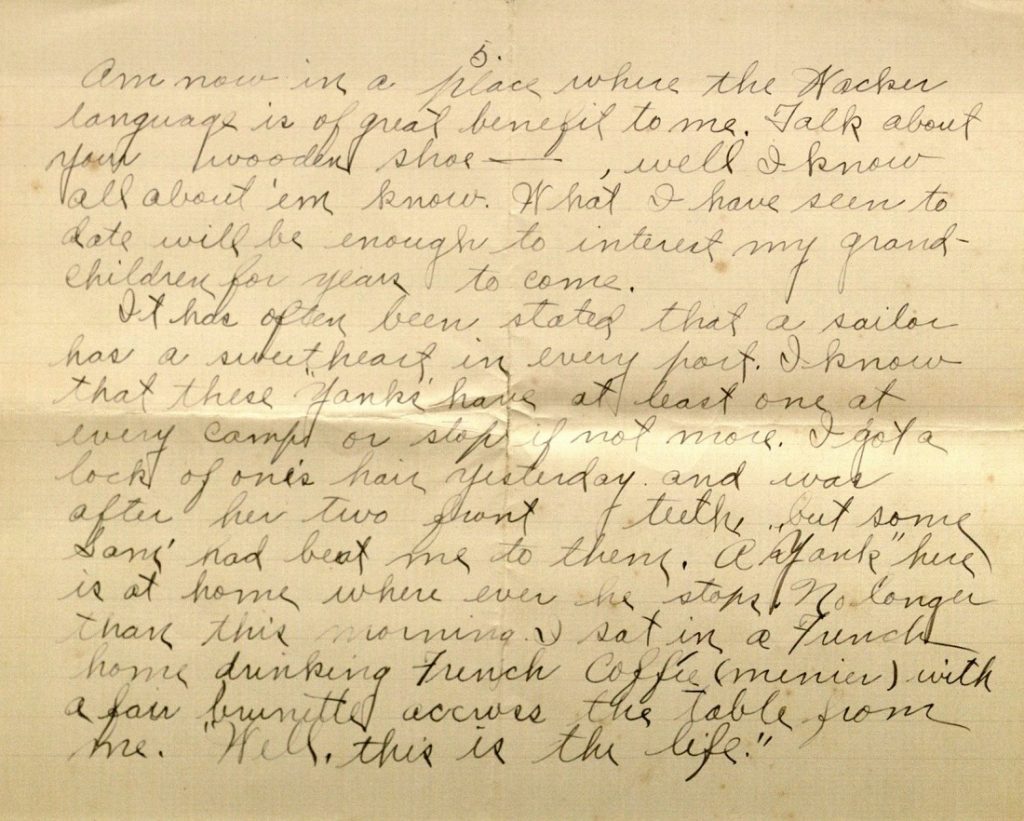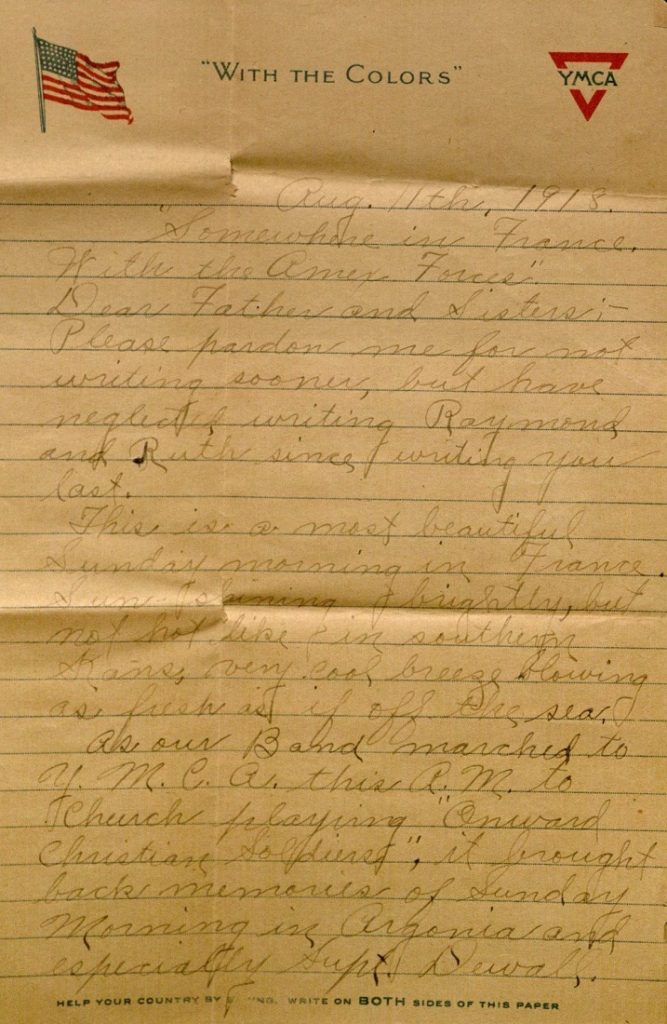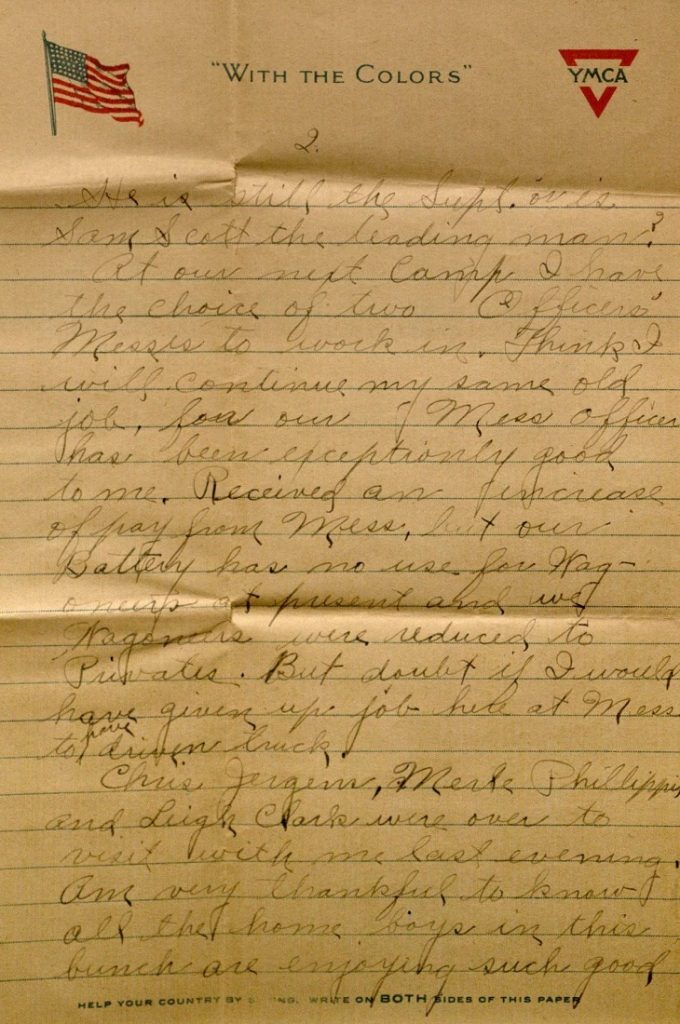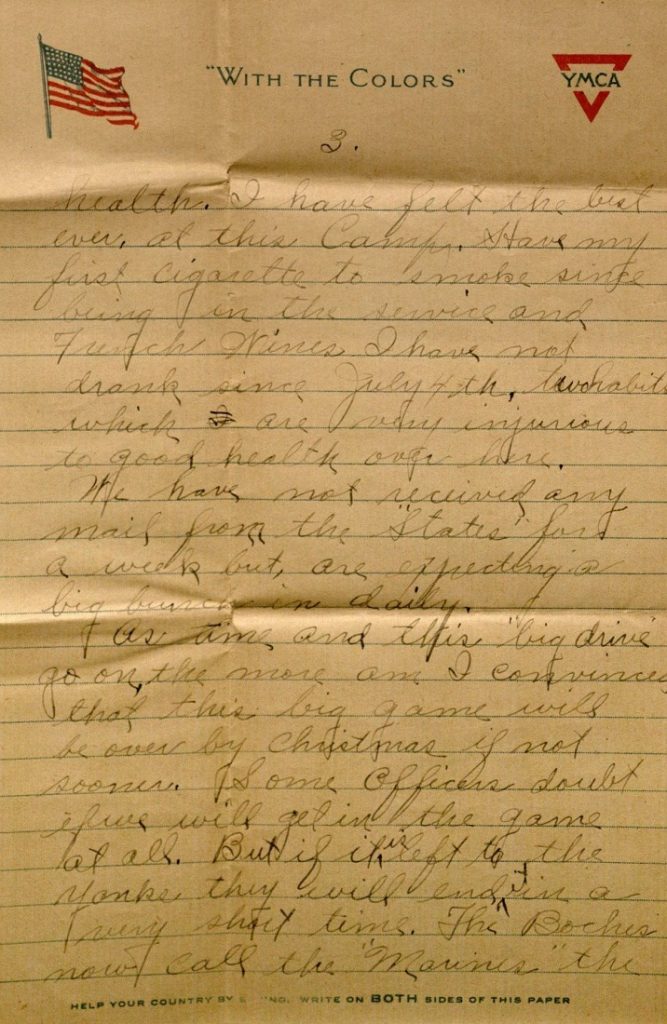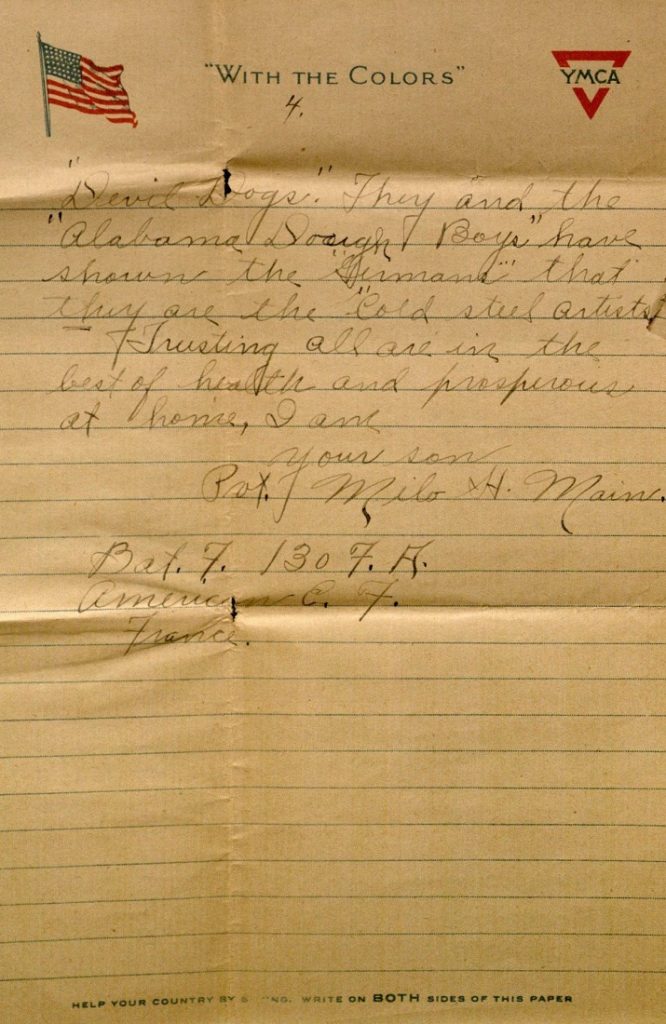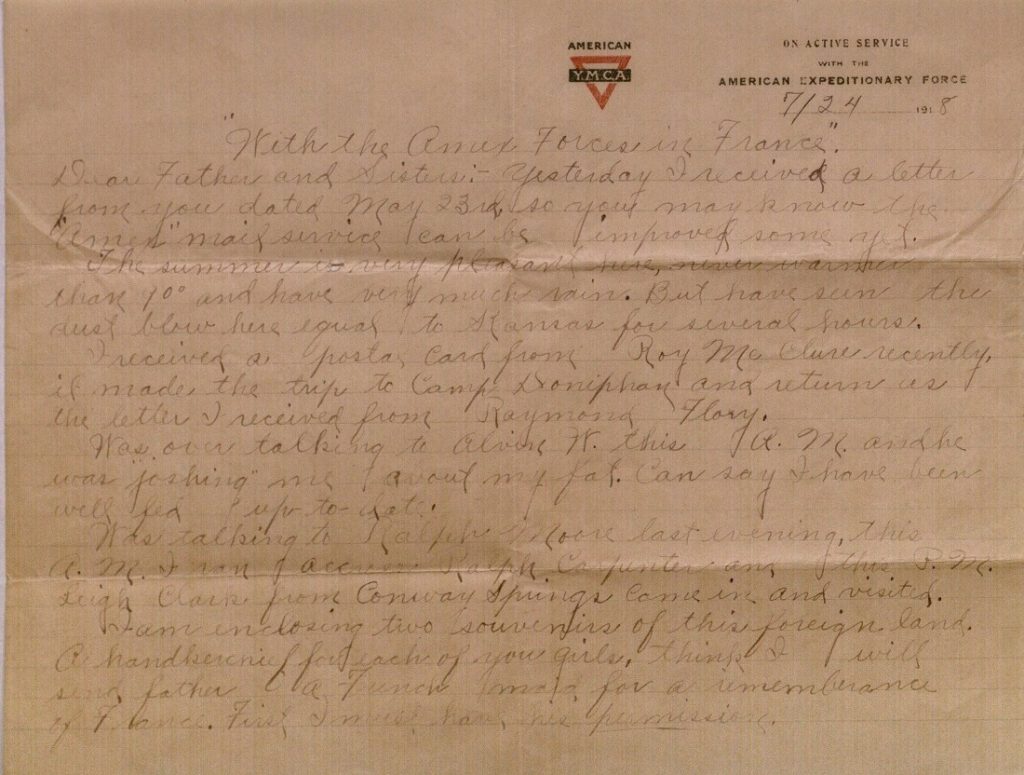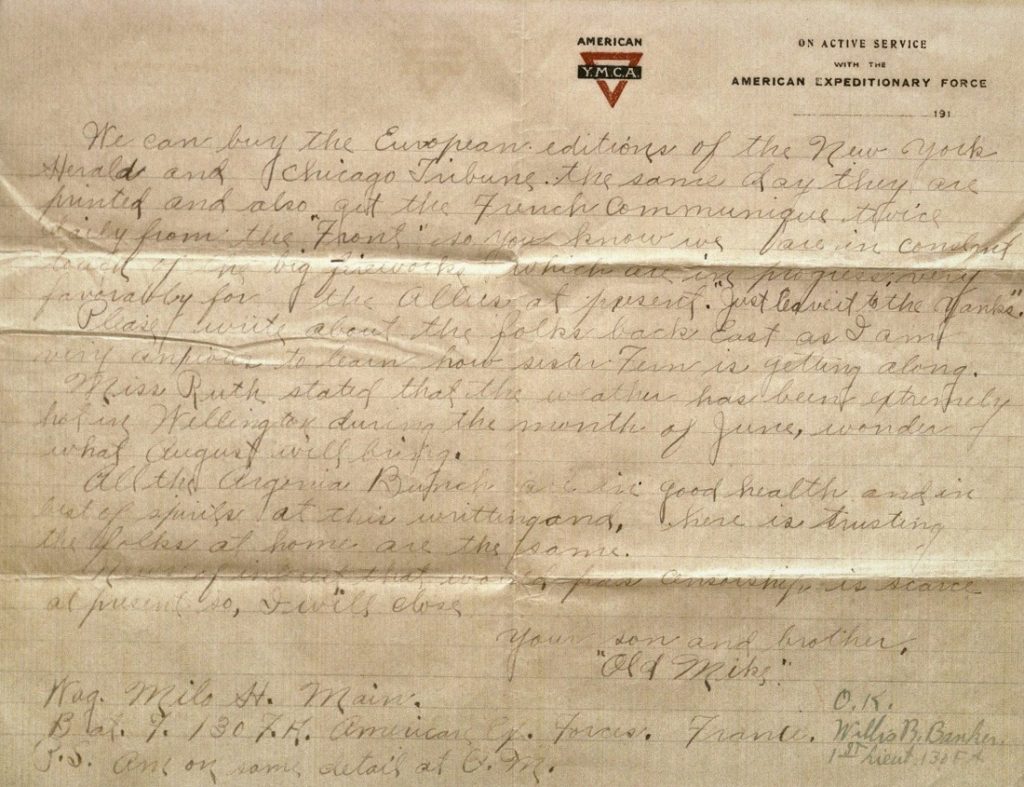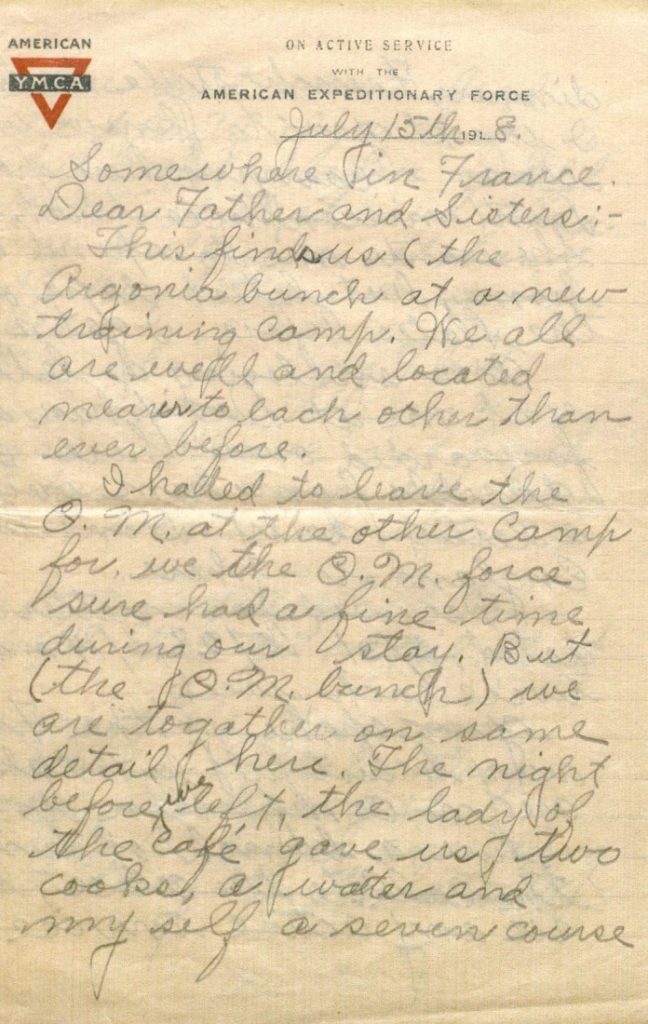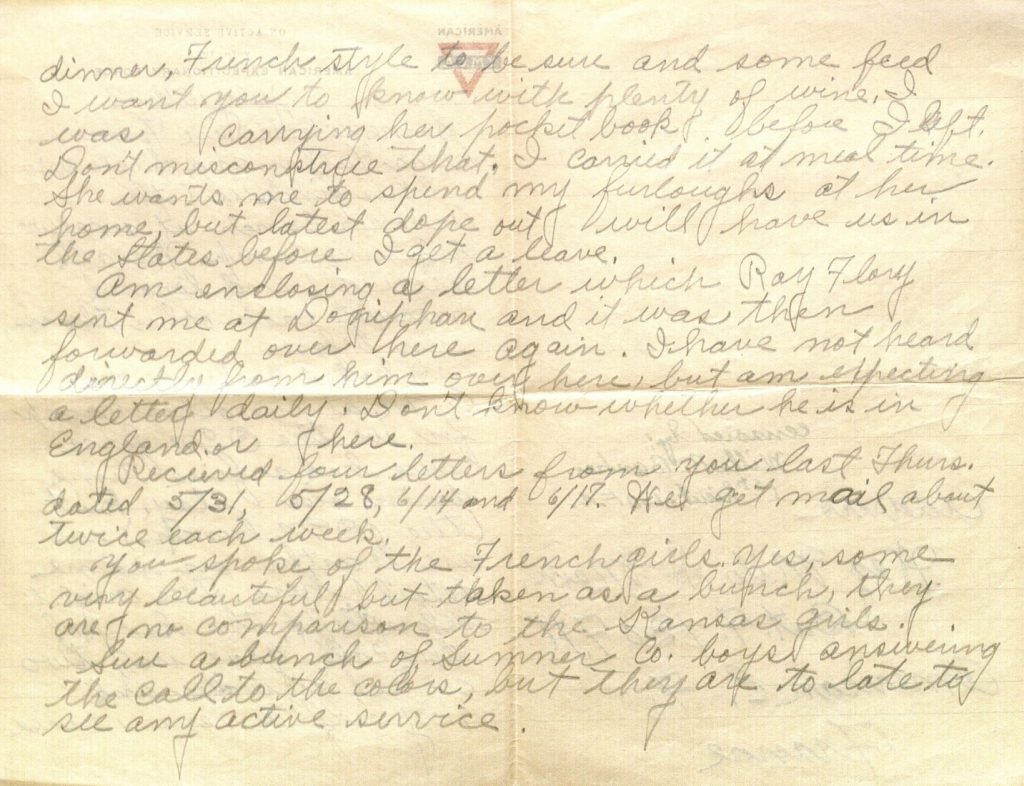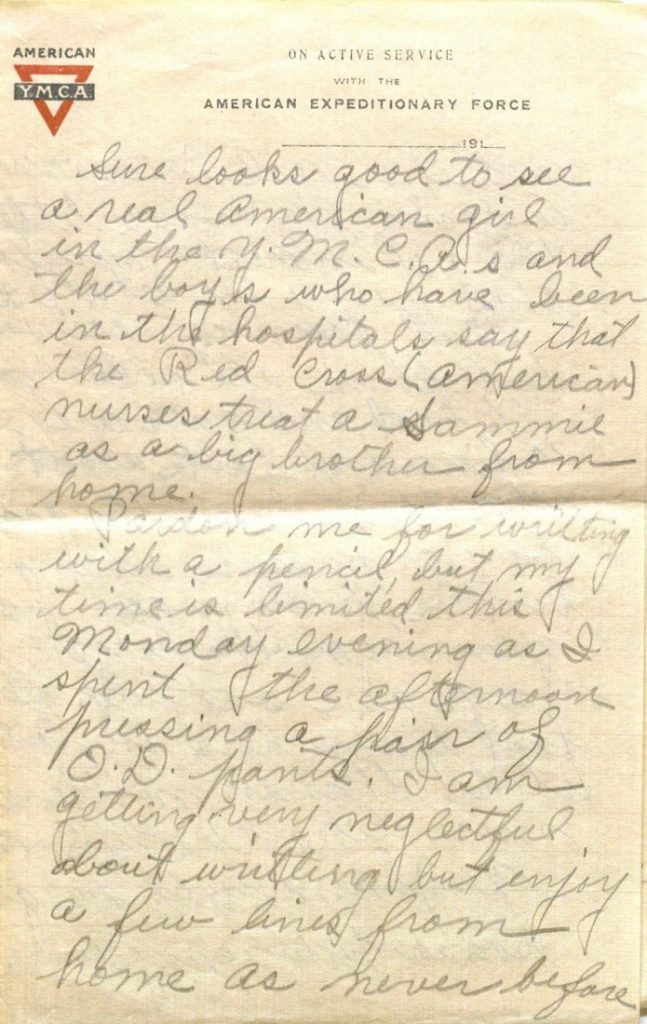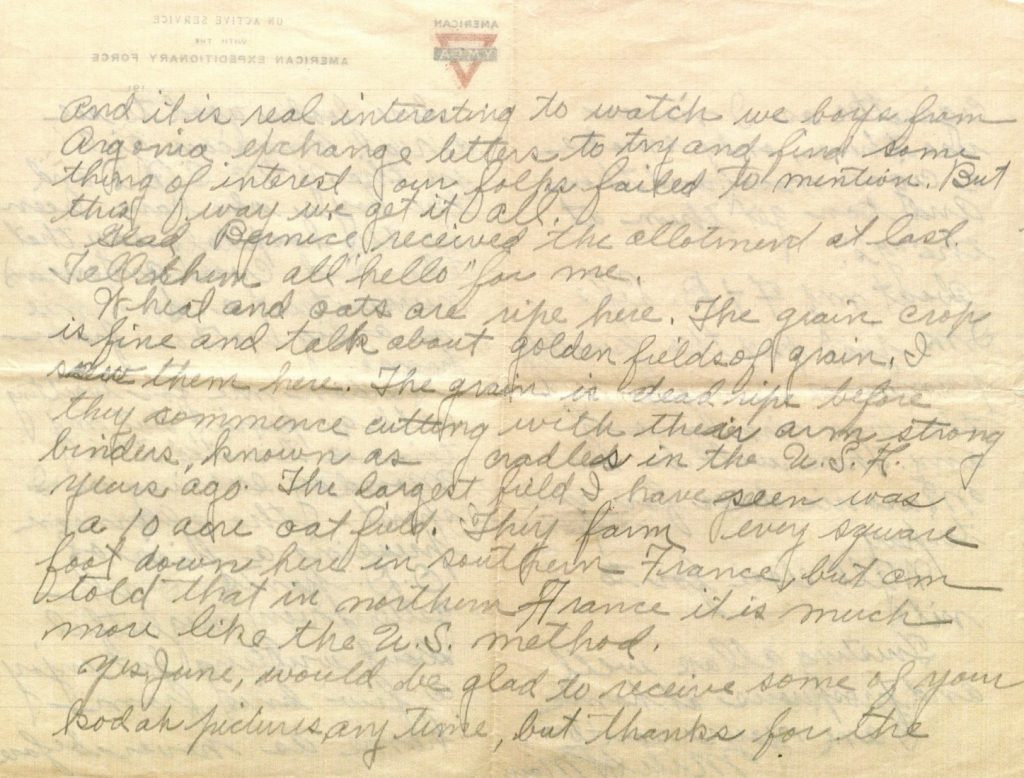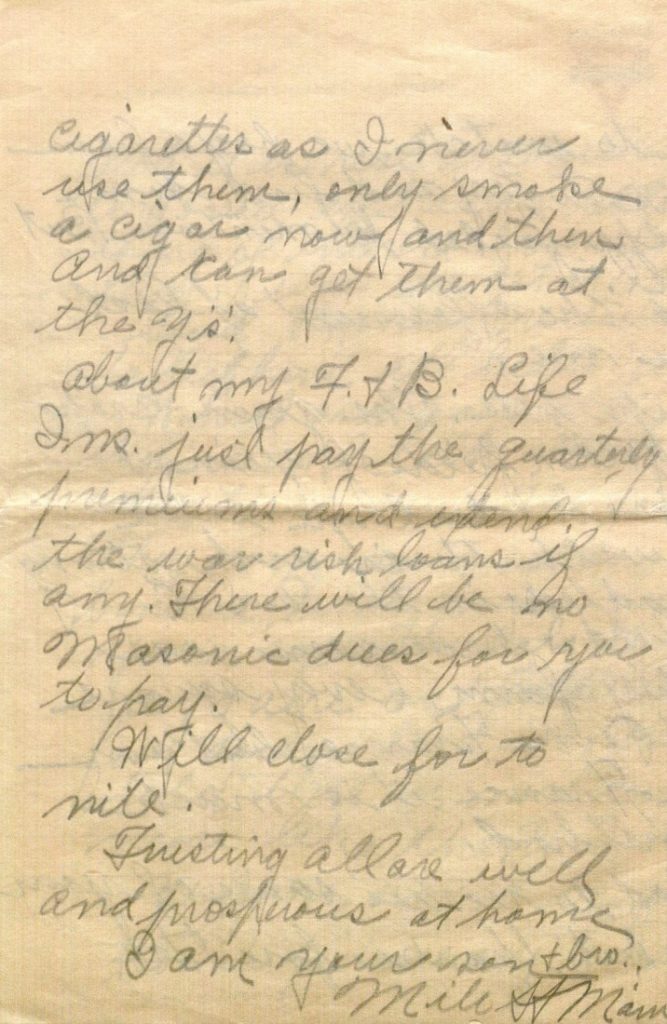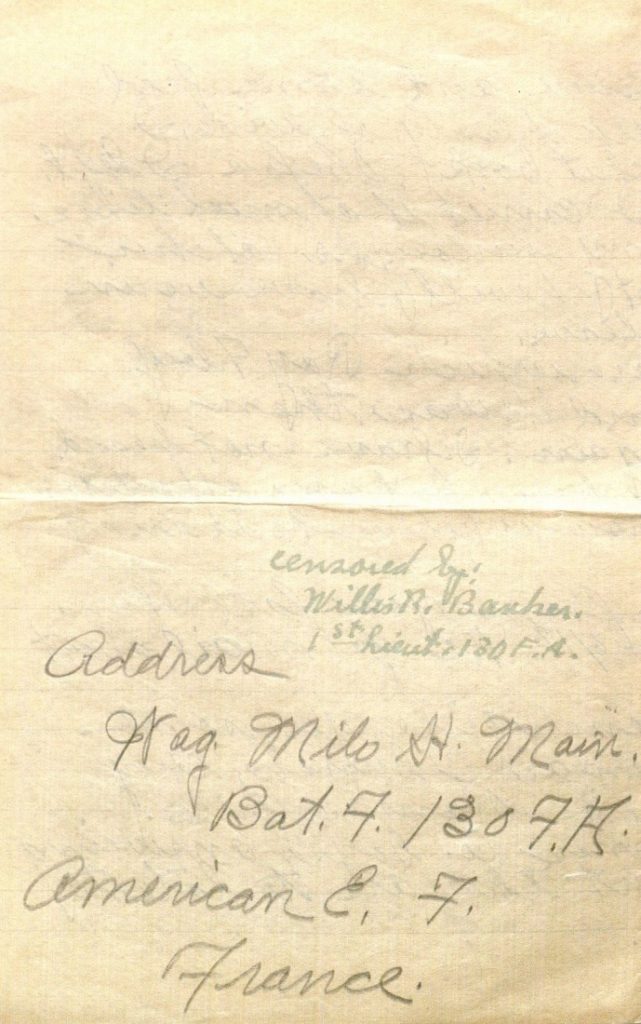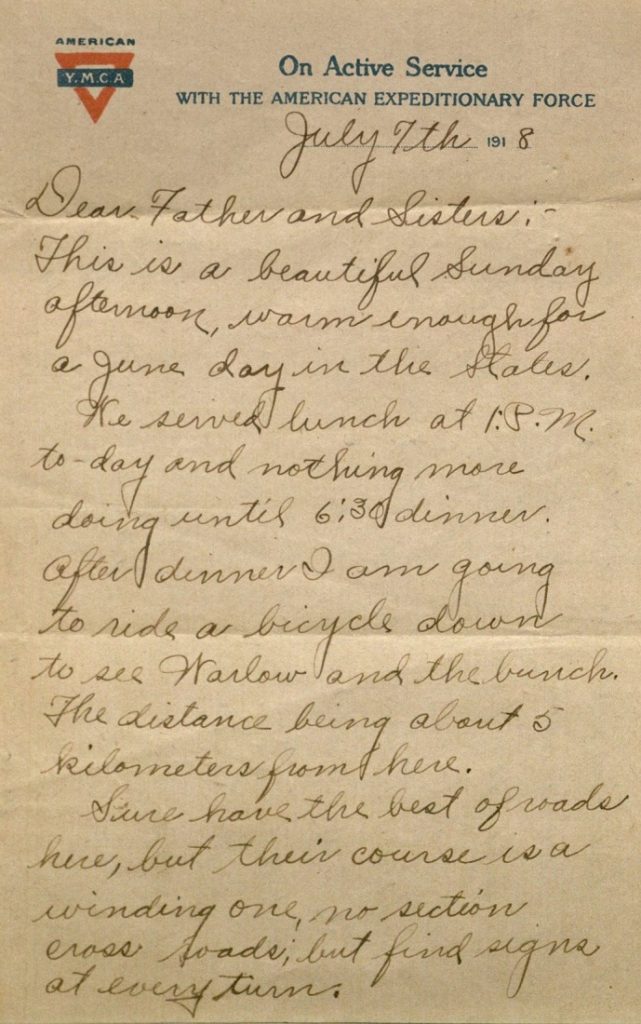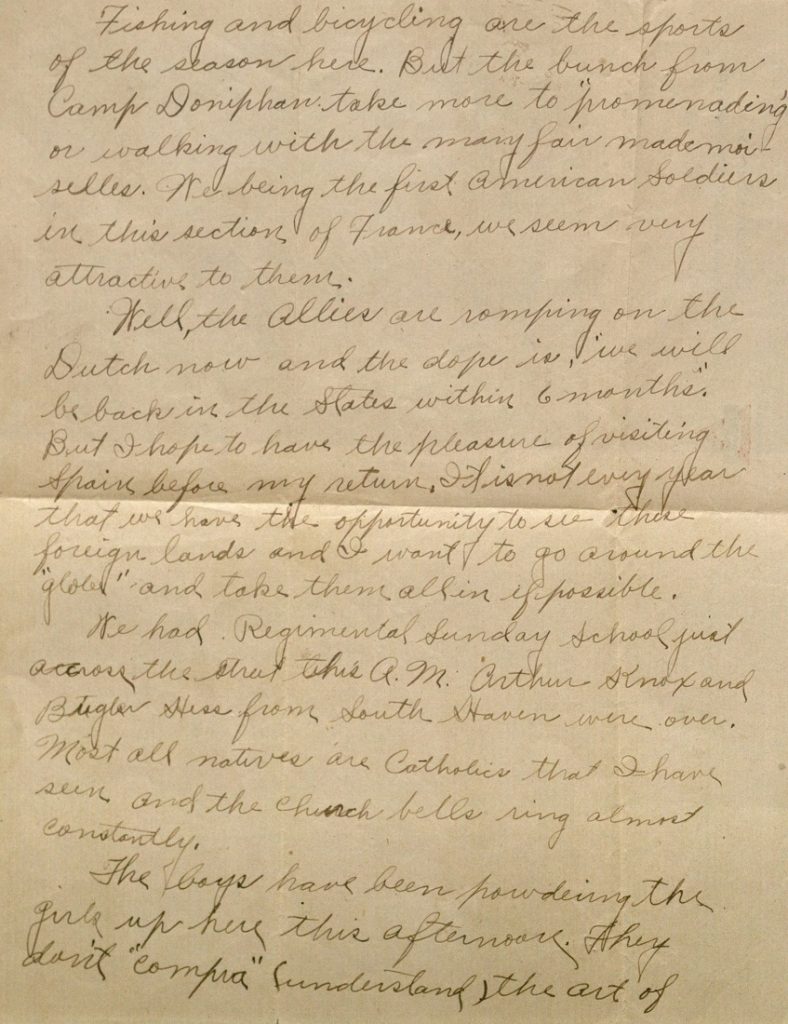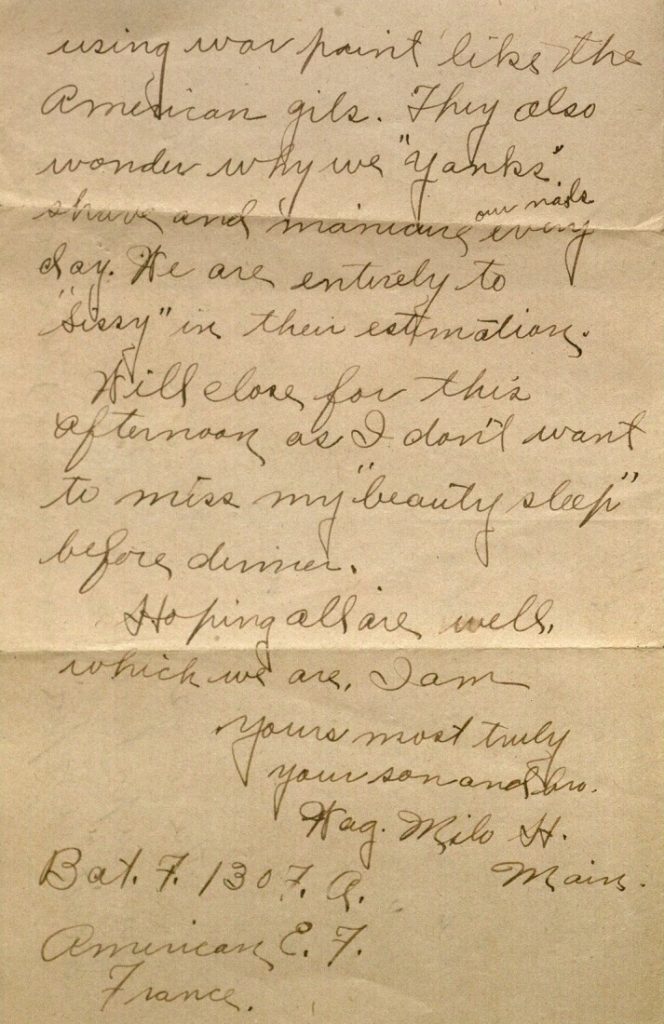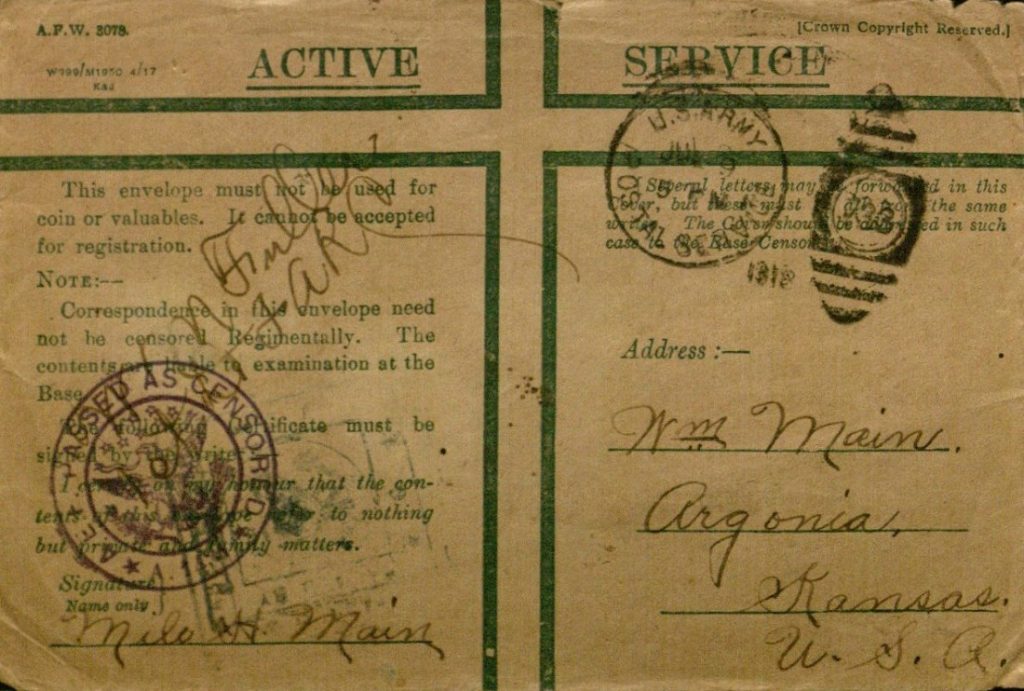World War I Letters of Milo H. Main: August 13-19, 1918
August 13th, 2018In honor of the centennial of World War I, this is the second series in which we follow the experiences of one American soldier: twenty-five year old Milo H. Main, whose letters are held in Spencer’s Kansas Collection. On Mondays we’ll post a new entry featuring selected letters from Milo to his family from that following week, one hundred years after he wrote them.
Milo Hugh Main was born in or near Pittsfield, Illinois, on November 21, 1892 to William and Rose Ella Henry Main. The family moved to Argonia, Sumner County, Kansas, in 1901. After his mother died in 1906, Milo remained in Argonia with his father and his two sisters Gladys (b. 1890) and June (b. 1899). His youngest sister Fern (b. 1905) was sent to live with relatives in Illinois.
As Milo reported to the Kansas State Historical Society in 1919, after graduating from high school he worked as a store clerk. He resigned in July 1917 and took a position at Standard Oil Company, possibly co-managing a gas station in Argonia.
Milo entered into military service on September 21, 1917. He served as a wagoner – a person who drives a wagon or transports goods by wagon – in Battery F, 130th Field Artillery. He was stationed at Camp Funston (September-October 1917) and Camp Doniphan (October 1917-May 1918). On May 19, 1918, he boarded the ship Ceramic in New York City and departed for Europe.
In this week’s letter, Milo apologizes to his family for not writing sooner, explaining that he has “been traveling and in camp only a few days at a time.” Moreover, he has “seen some very beautiful mountain scenery here in the foot hills of the Alps…Very hard for me to be seated long enough to write when there is so much to see.”
Aug. 19th, 1918.
Somewhere in Europe with “Amex Forces”
Dear Father and Sisters:- Please pardon me again for not writting. But have been traveling and in camp only a few days at a time.
Received my last mail from the States about ten days ago. Received four letters from you dated; June 21st, July 15th, July 16th, and July 18th. Also one from J.W.A. (1) postmarked July 22nd and mail from your county seat, too.
Very proud to know you had father and mother’s picture enlarged and so life like. Had often thought of doing it.
Please speak a kind work to P.T. Raine (2) for me, very sorry to learn of his poor health.
Many thanks for the Argosy [Argonia newspaper] clipping of the boys whom were called.
Yes, we get all the dope [inside information] from the “Front” by wireless and can buy Europian editions of the leading U.S. daily newspapers with all the war news as well as the happenings in the U.S.A.
Thanks [sister] June, for caring for my ins. policies.
Well, I am still detached for O.M. duty, but, since we started on move have been acting in some capacity as Uncle Will (3) and I did in Colo. last season. And have seen some very beautiful mountain scenery here in the foot hills of the Alps, but, Colo. is the most scenic to date for me. Very hard for me to be seated long enough to write when there is so much to see. You spoke of the new system on sugar. I have never been affected by it over here yet. Carried a big can of it on this trip. Leave it to “Old Mike” and it is not such a hard war as you may think. There has not been a minute since we left Camp in the States that I have not enjoyed this wonderful experience.
In my travels from southern to northern and western France, I found it a more progressive country the farther north I traveled and in central part there were some land and fields much like those of Sumner Co. And wheat was a big crop but oats only fair. Threshing machines I haven’t seen a one, but saw many small farmers using the frail. Saw my first tractors and binders as we passed thru the above mentioned district.
The French railroad systems are a joke to the “Yanks.” In first place they are many years behind on modern railways, excepting Paris and near the Front where they are using U.S. locomitives and cars. They still use the hook and link coupler with out air expect on their most modern system and many narrow gauge roads are in use yet. They blow a whistle (the trainmen) instead of signaling by hands, the blast or call reminds one of a hunter’s duck caller back in the States. Saw German prisoners doing switchmen’s work in railroad yards. Beleive me, it sure looks good to see U.S.R.R. [U.S. railroad] equipment over here.
Am now in a place where the Wacker language is of great benefit to me. Talk about your wooden shoe–, well I know all about ‘em know. What I have seen to date will be enough to interest my grandchildren for years to come.
It has often been stated that a sailor has a sweetheart in every port. I know that these “Yanks” have at least one at every camp or stop if not more. I got a lock of one’s hair yesterday and was after her two front teeth but some Sam’ had beat me to them. A “Yank” here is at home where ever he stops. No longer than this morning I sat in a French home drinking French Coffée (menier) (4) with a fair brunette accross the table from me. “Well, this is the life.”
(1) Possibly J. W. Achelpohl, a storeowner in Argonia. According to Milo’s World War I draft registration card, Achelpohl was his employer when he worked as a clerk.
(2) Phillip Thomas Raine was born in Missouri or Kentucky in 1852. Census information suggests that the Raine family moved from Missouri to Kansas sometime between 1878 and 1885. In May 1918, the Argonia Argosy reported that Tom Raine was stricken with paralysis while working on his farm.
(3) Probably William M. Henry, a brother of Milo’s mother. Born in Illinois in 1861, William relocated to Sumner County, Kansas, with his wife and children around 1900.
(4) Possibly a reference to Menier French chocolate.
Meredith Huff
Public Services
Emma Piazza
Public Services Student Assistant

